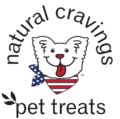All dog owners agree that the happy tail wags brought on by treats are a reward in and of themselves. Treats are great to use for teaching and rewarding excellent behavior. Or simply because your dog is so adorable. Healthy dog treats offer us a wonderful way to show our pets that we care. From our largest dog breeds to the smallest dog breeds, we thus search for the greatest dog treats we can locate.
Pet care experts also understand that improper treats lead to an imbalanced diet. And while your dog may enjoy bacon, obese dogs have shorter lifespans. Also, they are more likely to develop conditions like pancreatitis, diabetes, and arthritis. Although it’s uncommon, dogs can become allergic or sensitive to some foods. Because of this, you should only give them the greatest, most high-quality treats. Furthermore, be aware of how any dietary changes may affect them.
WHAT TO SEARCH FOR WHEN PURCHASING NUTRITIOUS DOG TREATS
Dog experts recommend staying away from dog treats that include chemical preservatives or excessive amounts of fat (over 25%). Ingredient percentage analyses by weight must always be on the nutritional label of a product. The ingredients with the highest amounts must come first.
Look for treats with a limited ingredient or a single source. Protein products that are freeze-dried or dehydrated are well-liked by dogs. Furthermore, they contain a lot of nutrition in small amounts.
Dehydrated fruits and vegetables are also a great treat choice. They have a great nutritional boost and a great shelf life without the use of preservatives.
WHAT FORMS A HEALTHY DOG SNACK?
When you choose snacks for yourself or your children, you try to make the best choice for the moment. And the same can be said for your pup. Treats should make up no more than 10% of your dog’s regular diet. However, treats cannot replace their regular diet, and you should always keep fresh water available for your pup.
No matter how healthy the snack is. Too many extra treats can cause weight gain. Try to find treats that are low-calorie and low-fat. Premium treats made from quality sources can help provide a nutritional boost for your pup.
Try to keep these three things in mind when thinking about giving your dog a snack made of human food.
Determine the balance of nutrients
Remember that treats aren’t typically created to be nutritionally balanced. Eating too many snacks can also cause occasional vomiting and diarrhea.
Analyzing good and bad ingredients
Dog owners should avoid purchasing dog treats that include artificial sweeteners like xylitol.
Avoiding artificial colors and too much salt, syrups, and molasses are other things to do. Also, keep an eye out for added things like raisins, onions, and other toxic food that might be hidden inside your food. Like onions on a cheeseburger. While they are OK for humans, they are poisonous to dogs.
Select the ideal-sized dog treat
Giving a dog a reward that is too large or too tiny for them can be dangerous. As your dog chews larger treats, you should keep an eye on them as well. They are prone to breaking and becoming choking hazards.
The size also depends on whether the treat is being used for training or mental stimulation. Since training treats will be so tiny, you can give more for positive behavior. Bully sticks, bones, and dog chews are examples of regular treats that are larger. You should primarily give them for
intellectual stimulation or enrichment. These treats you should not give these as often since too many treats can lead to an upset tummy from too much protein.
TYPES OF DOG TREATS
Crunchy
Includes biscuits, bars, cookies, etc. The tastes, forms, and sizes of these sweets can vary greatly. They often take a few moments to consume. And they are more difficult to break into smaller pieces for a reward.
Soft and chewy
Soft chewy treats are great for dog training because they are available in a range of flavors. They are desirable when delivering frequent rewards for training. Because their soft texture makes them simpler to break into tiny bite-sized pieces. They are also regarded as desirable treats because of their meaty flavor and strong smell. If your dog is food-motivated, these treats are lightweight and perfect for training.
Natural Cravings USA has a wide variety of healthy meaty treats that your dog is sure to love. Shop now.
Long-lasting chews
Consider giving your dog a chew that is similar to a bone but is softer and safer, like a bully stick. Bully sticks often have a single component (high-protein beef pizzle). Many brands are often free of preservatives, making them safer, simpler to digest, and generally safer.
It is important to think about the higher calorie content of these treats. As well as how often you offer them to your dog. Keep in mind that these chews are made to be enjoyed over multiple chew sessions, so while 100 calories might sound like a lot, an extra 15 a day isn’t as bad. To ensure proper digestion, always keep an eye on your dog when they are enjoying these chews.
Human food
While many human snacks may be enjoyable to share, they also have a lot of calories. Apples are excellent for your dog. They are low in calories and full of important minerals like calcium and phosphorus.
Fruit snacks that are good for dogs
Fruits can serve as a satisfying snack that is both healthful and nourishing. The best ones to introduce to your dog are these.
Apples: Apples provide the nutritional fiber that helps your dog’s digestive tract. Vitamins A and C are present. Just make sure to remove the seeds and core, as the seeds can be toxic to your dog.
Blueberries: Blueberries are full of antioxidants. This benefits your dog’s immune system and digestive systems.
Bananas: They are rich in potassium, vitamins, biotin, and fiber. They are also a low-calorie delight. Since they contain more sugar than other fruit varieties, keep the serving size low.
Strawberries: Strawberries include a lot of water, so they can keep your dog hydrated. Your dog might prefer them chilled! To avoid choking, be sure to trim the leaves and cut each one in half.
Watermelon: Watermelon is a refreshing food. It gives your dog vitamins A, B6, and C. It also keeps them hydrated.
Dogs’ healthy vegetable snacks
Vegetables are essential to dogs’ diets. Because they help maintain balance and provide nutrition. Here are the top choices.
Carrots: Carrots are fantastic low-calorie snacks. They are rich in beta-carotene, a vital antioxidant. It supports a healthy immune system and helps prevent cataracts and heart problems.
Cucumbers: Try some sliced cucumbers if your dog is a little overweight. It contains a lot of vitamins K, C, and B1, although having few calories. additionally to magnesium, potassium, copper, and biotin. And they love the crunch.
Pumpkin: Pumpkin is a great source of vitamin A, beta-carotene, and vitamin C. This is why it appears in so many recipes for healthy dog treats. Keep in mind not to add butter, sugar, or salt when you are cooking or steaming pumpkin.
Sweet potatoes: Another delicious orange treat that is great for your dog. Sweet potatoes are a great source of fiber, potassium, manganese, vitamin C, and vitamins B5, and B6. As well as other nutrients.
FINAL THOUGHTS
When it comes to providing healthy snacks for your furry friend, it’s important to be mindful of the calorie content and nutritional value. Fruits such as apples, blueberries, bananas, strawberries, and watermelon are all low-calorie options that provide essential vitamins and minerals. Vegetables like carrots, cucumbers, pumpkin, and sweet potatoes can also make great treats while helping maintain balance in your pet’s diet. With these tips in mind, you can keep your dog happy with nutritious treats without compromising their health or weight goals!
But for the best treat for your dog, try Natural Craving’s meaty Sizzle Sticks.Shop now.

